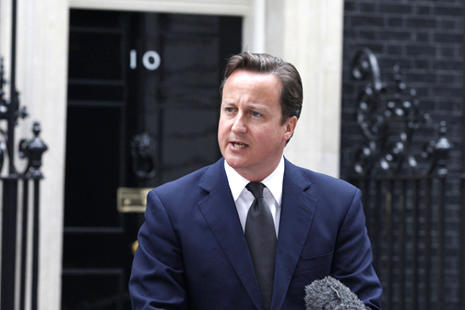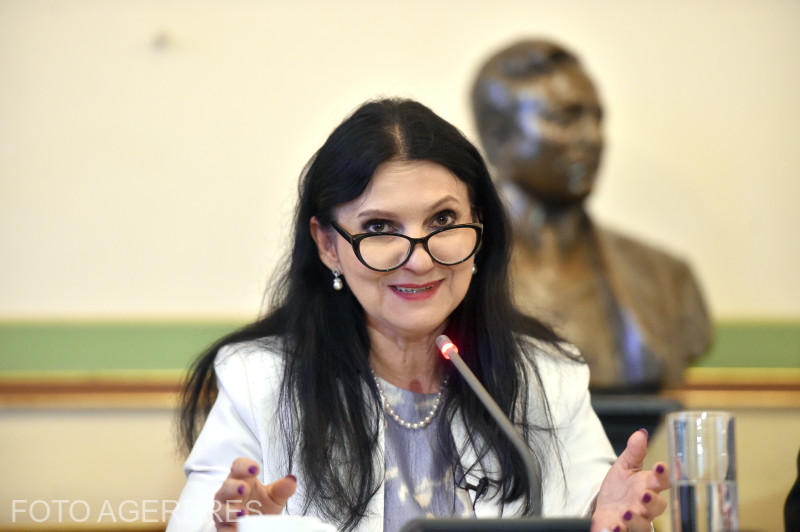Premierul britanic David Cameron a lansat marti provocarea finala pentru Uniunea Europeana, intr-un discurs care anunta cele patru mari obiective de negociere. Guvernanta economica, competitivitatea, suveranitatea si imigratia sunt cele patru capitole de negociere care vor decide anul viitor, ca capatul unui referendum, daca Marea Britanie ramane in UE. Romania e interesata intr-un grad ridicat de provocarea lansata de Cameron pentru ca unul din cele patru obiective ale sale e limitarea numarului de imigranti din interiorul UE.

Astfel, premierul britanic a declarat ca Marea Britanie vrea un control mai mare asupra migratiei din tarile UE si a cerut ca dreptul de libera circulatie a muncitorilor sa nu se aplice tarilor nou intrate in UE pana cand economiile lor nu sunt suficient de dezvoltate.
Oficialul britanic considera ca reducerea numarului europenilor care vin in Marea Britanie se poate face prin ingradirea accesului la beneficiile sistemului social.
Cameron propune doua noi masuri pentru a descuraja "turismul pentru beneficiile sistemului social britanic".
Prima: imigrantii din UE care vin in Marea Britanie trebuie sa contribuie minimum 4 ani la sistemele sociale inainte de a putea cere ajutoare. Daca va fi pusa in aplicare, masura va duce la disparitia migratiei de cetateni romani saraci (de exemplu) care se duc in Marea Britanie si beneficiaza automat de ajutoare.
A doua masura propusa astazi de Cameron: Incetarea practicii de a trimite in strainatate ajutoarele pentru copii.
In discursul sau, Cameron a spus ca intelege ca aceste teme sunt dificil de acceptat pentru unele state membre UE, dar s-a aratat dispus la negocieri.
David Cameron precizeaza in scrisoare ca Marea Britanie si celelalte opt state membre care nu sunt in euro sunt interesate de succesul zonei si nu se opun masurilor decise in interiorul acestui spatiu, dar doresc sa fie sigure ca acestea "vor respecta integritatea Pietei Unice si interesele legitime ale statelor non-membre".
"Sunt increzator ca vom ajunge la un acord in acest sens care sa convina tuturor", a scris Cameron, explicand ca Londra nu vrea un drept de veto asupra deciziilor din zona euro, ci un mecanism care sa garanteze respectarea unui set de principii, printre care faptul ca in UE nu este doar o moneda si sa nu existe discriminari sau dezavantaje in functie de moneda unui stat, transmite Euractiv.ro.
Totodata, el cere ca deciziile luate pentru zona euro sa nu fie obligatorii si pentru statele non-membre, ci doar optionale, si ca orice masura care afecteaza toate statele sa fie discutata si decisa de catre toate statele.
In ceea ce priveste Suveranitatea, David Cameron are trei propuneri:
a. "Vreau sa punem capat obligatiei Marii Britanii de a coopera in vederea unei Uniuni si mai unite, asa cum scrie in Tratat. Este foarte important sa stabilim clar ca acest angajament nu va mai fi valabil pentru Marea Britanie".
b. "Vreau sa fie intarit rolul parlamentelor nationale, prin crearea unui nou cadru in care grupuri din cadrul parlamentelor nationale sa lucreze impreuna si sa respinga propunerile legislative nedorite" ale PE.
c. "Vreau ca angajamentul UE privind subsidiaritatea sa fie implementat pe deplin, prin inaintarea unor propuneri clare in scopul atingerii acestui obiectiv".
CE: Anumite cereri ale Londrei, foarte problematice
Comisia Europeana a calificat, marti, anumite cereri formulate de Marea Britanie privind reforma blocului comunitar ca "foarte problematice", cu referire in primul rand la "discriminarea directa intre cetatenii UE - implicata de limitarea accesului la ajutoare sociale al imigrantilor europeni, transmite Euractiv.ro.
Fragmentul din discursul lui Cameron legat de limitarea numarului de imigranti din interiorul UE (original, in engleza, sursa Guvernul UK)
Fourth, we believe in an open economy. But we¬ve got to be able to cope with all the pressures that free movement can bring ¬ on our schools, our hospitals and our public services.
Right now the pressures are too great.
I appreciate that at a time when other European countries are facing huge pressure from migration from outside the EU, this may be hard for some other EU countries to understand.
But in a way these pressures are an example of exactly the point the UK has been making in recent years.
For us, it is not a question of race or background or ethnicity ¬ Britain is one of the most open and cosmopolitan countries on the face of the earth.
People from all over the world can find a community of their own right here in Britain.
The issue is one of scale and speed, and the pressures on communities that brings, at a time when public finances are already under severe strain as a consequence of the financial crisis.
This was a matter of enormous concern in our recent General Election campaign and it remains so today.
Unlike some other member states, Britain¬s population is already expanding.
Our population is set to reach over 70 million in the next decades and we are forecast to become the most populous country in the EU by 2050.
At the same time, our net migration is running at over 300,000 a year.
That is not sustainable.
We have taken lots of steps to control immigration from outside the EU.
But we need to be able to exert greater control on arrivals from inside the EU too.
The principle of the free movement of labour is a basic treaty right and it is a key part of the single market.
Over a million Brits benefit from their right to live and work anywhere in the EU.
We do not want to destroy that principle, which indeed many Brits take for granted.
But freedom of movement has never been an unqualified right, and we now need to allow it to operate on a more sustainable basis in the light of the experience of recent years.
Britain has always been an open, trading nation, and we do not want to change that.
But we do want to find arrangements to allow a member state like the UK to restore a sense of fairness to our immigration system¬
¬and to reduce the current very high level of migration from within the EU into the UK.
That means first of all correcting the mistakes of the past by ensuring that when new countries are admitted to the EU in the future¬
¬free movement will not apply to those new members until their economies have converged much more closely with existing member states.
Next, we need to create the toughest possible system for dealing with abuse of free movement.
That includes tougher and longer re-entry bans for fraudsters and people who collude in sham marriages.
It means addressing the fact that it is easier for an EU citizen to bring a non-EU spouse to Britain than it is for a British citizen to do the same.
It means stronger powers to deport criminals and stop them coming back, as well as preventing entry in the first place.
And it means addressing ECJ judgments that have widened the scope of free movement in a way that has made it more difficult to tackle this kind of abuse.
But ultimately, if we are going to reduce the numbers coming here we need action that gives greater control of migration from the EU.
As I have said previously, we can do this by reducing the draw that our welfare system can exert across Europe.
To those who say that this won¬t make a difference. I say look at the figures.
We now know that, at any one time, around 40 percent of all recent European Economic Area migrants are supported by the UK benefits system¬
¬with each family claiming on average around ᅡ6,000 a year of in work benefits alone¬
¬and over 10,000 recently-arrived families claiming over ᅡ10,000 a year.
We need to restore a sense of fairness, and reduce this pull factor subsidised by the taxpayer.
So I promised 4 actions at the election.
Two have already been achieved.
EU migrants will not be able to claim Universal Credit while looking for work.
And if those coming from the EU haven¬t found work within 6 months, they can be required to leave.
But we need to go further to reduce the numbers coming here.
So we have proposed that people coming to Britain from the EU must live here and contribute for 4 years before they qualify for in work benefits or social housing.
And that we should end the practice of sending child benefit overseas.
Now, I understand how difficult some of these welfare issues are for other Member States.
And I am open to different ways of dealing with this issue.
But we do need to secure arrangements that deliver on the objective set out in the Conservative Party manifesto to control migration from the European Union.























